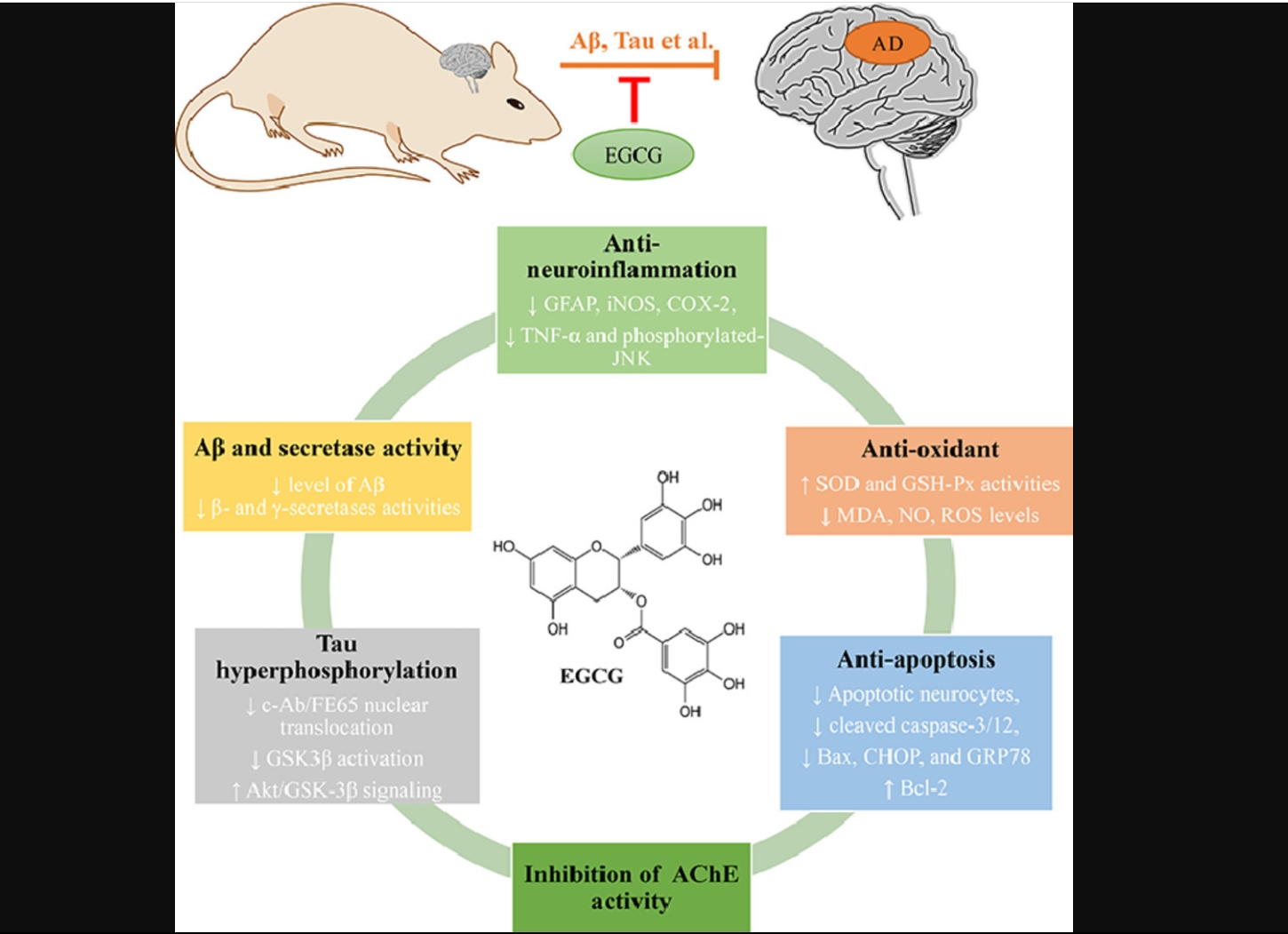The pharmacological activity of epigallocatechin-3-gallate (EGCG) on Alzheimer's disease animal model: A systematic review
Shuang Zhang Phytomedicine Volume 79, December 2020, 153316
Highlights
• Retrieved literature of EGCG effects on AD animal models.
• Meta-analysis of AD biomarker and MWM test.
• Neuroprotective effects and mechanisms of EGCG on AD models.
• Benefit and safety of EGCG reported in the completed clinical trials.
• Further perspectives and challenges of developing effective pharmaceuticals from EGCG.
Background
Alzheimer's disease (AD) is currently incurable and there is an urgent need to develop new AD drugs. Many studies have revealed the potential neuroprotective effect of Epigallocatechin-3-O-gallate (EGCG), the main antioxidant in green tea, on animal models of AD. However, a systematic review of these reports is lacking.
Purpose
To assess the effectiveness of EGCG for AD treatment using systematic review and meta-analysis of pre-clinical trials.
Methods
We conducted a systematic search of all available randomized controlled trials (RCTs) performed up to November 2019 in the following electronic databases: ScienceDirect, Web of Science, and PubMed. 17 preclinical studies assessing the effect of EGCG on animal AD models have been identified. Meta-analysis and subgroup analysis was performed to evaluate cognition improvement of various types of AD models. The study quality was assessed using the CAMARADES checklist and the criteria of published studies.
Results
Our analysis shows that the methodological quality ranges from 3 to 5, with a median score of 4. According to meta-analysis of random-effects method, EGCG showed a positive effect in AD with shorter escape latency (SMD= -9.24, 95%CI= -12.05 to -6.42) and decreased Aβ42 level (SD= -25.74,95%CI= -42.36 to -9.11). Regulation of α-, β-, γ-secretase activity, inhibition of tau phosphorylation, anti-oxidation, anti-inflammation, anti-apoptosis, and inhibition of AchE activity are reported as the main neuroprotective mechanisms. Though more than 100 clinical trials have been registered on the ClinicalTrials.gov, only one clinical trial has been conducted to test the therapeutic effects of EGCG on the AD progression and cognitive performance.
Conclusion
Here, we conducted this review to systematically describe the therapeutic potential of EGCG in animal models of AD and hope to provide a more comprehensive assessment of the effects in order to design future clinical trials. Besides, the safety, blood-brain barrier (BBB) penetration and bioavailability issues in conducting clinical trials were also discussed.














